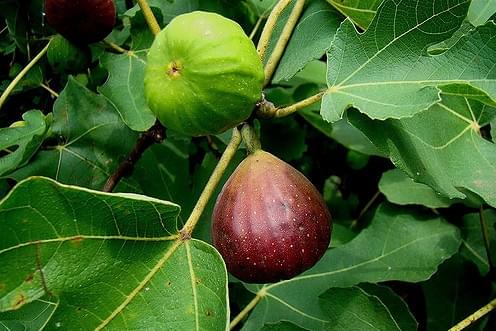With the start of the New Year, many of us have New Year resolutions such as getting healthy, lose weight, reduce stress or start a new hobby. Gardening can be a way to accomplish many of these resolutions. With interest in growing one’s own food increasing in popularity over recent years, fruit trees are just one group of plants that can provide fresh fruit just outside your backdoor.
There are benefits and challenges with growing fruit trees in your backyard so you have to be realistic in determining if it is worth it. Benefits include having fresh, healthy food in your own backyard and satisfaction of growing your own fruit along with having control of what has been applied to the fruit. One of the biggest challenges is that growing tree fruits require some work because they are not low maintenance. They usually require yearly pruning, have to be closely monitored to stay ahead of common pest problems and weather can be a challenge. Some of the easiest tree fruits to grow in Wayne County would include figs, pears and plums. Apples, peaches and nectarines are considered difficult to grow in our area because they require a lot of input (pruning, pest control, weather challenges) to get a decent harvest. Not all types of fruit trees work in our area due to unsuitable climate. These would include apricots and cherries. Citrus can be grown successfully in containers if brought indoors each winter to a warm, well lit room such as a sunroom.
If you are looking to adding some fruit trees to your garden, it pays to do your research and plan so you will be more successful in having decent harvest a few years after planting. Site selection is the first consideration and will be important for all fruit bearing trees to perform well. You will want to select a site with good drainage, full sun and correct soil pH. Soil pH can be determined by collecting a soil test (soil test kits are available at Wayne Co. Extension Office) and one would want a pH between 6.0 and 6.5 for fruit trees.
Pollination is another important factor to consider before purchasing any fruit trees to plant. Apples, pears and plums need cross pollination for fruit production to occur, so you will need to plan on planting more than one variety of tree. Peaches, nectarines and figs are self fruitful meaning you won’t need multiple plants for pollination and fruit production. Many fruit trees depend on honeybees for pollination so it will be important to not apply insecticides when trees are in full bloom since honeybees are susceptible to many insecticides.
Variety selection is often a factor that is not considered enough when picking out varieties of fruit trees. Not all varieties of fruit trees work in our Eastern North Carolina climate, just because you see it in the grocery store does not mean we can grow it well here. Most fruit trees (apples, peaches) need a set number of chilling hours to develop flower buds and leaf buds. Chilling hours is the time between 32 and 45°F. In Southeastern North Carolina we have 800 to 1,000 chilling hours. The number of needed chilling hours will vary with different varieties of fruit trees, so it is important to do your research on recommended varieties for our area.
When considering varieties you will also want to research what recommended varieties have pest resistance. Having a variety with pest resistance when available can reduce the amount or times you would have to apply a pesticide. Many types of fruit trees have a lot of common insect and disease problems, so routine pesticide applications is essential for most fruit trees, especially peaches and apples, to have reliable fruit production. Figs would be the best fruit tree to select is you want to grow one organically or do not want to deal with routine spraying.
Fruit trees can be a challenging plant to grow in the garden. They do require some routine management like pruning and pest control. However, it can be very rewarding to successfully grow your own fruit.
Jessica Strickland is an Agriculture Extension Agent, specializing in horticulture for North Carolina Cooperative Extension in Wayne County.

(Photo Credit: plants.ces.ncsu.edu)

